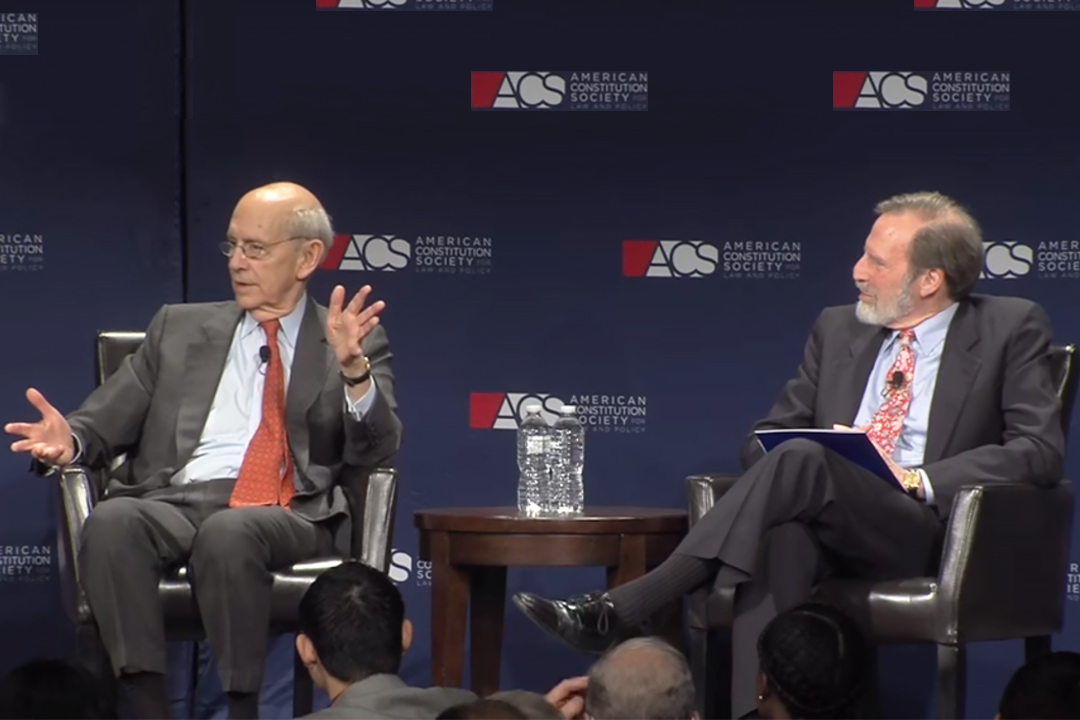The American Constitution Society for Law and Policy (ACS) recently held its annual national convention, which welcomed close to 1,000 of the nation's leading lawyers, law professors, policy advocates, judges and elected officials. On Thursday, June 8, United States Supreme Court Justice Stephen Breyer sat down for a conversation with his longtime friend, Alan B. Morrison, Lerner Family Associate Dean for Public Interest and Public Service Law. The Honorable Ketanji Brown Jackson of the United States District Court for the District of Columbia, who served as one of Justice Breyer's many law clerks, shared a few remarks before introducing the discussion.
Associate Dean Morrison began the conversation by asking Justice Breyer to discuss his clerkship for Justice Arthur Goldberg, Former Associate Justice of the Supreme Court of the United States. He fondly remembered his time as a law clerk and shared how he was able to form a professional relationship with Justice Goldberg. He recalled having frequent lunches with Justice Goldberg and explained how important it was for the law clerks to get to know him. "We got to know Justice Goldberg pretty well," Justice Breyer said. Justice Breyer described his time with Justice Goldberg as "interesting" and said he had "a very, very good year."
Justice Breyer then shared his thoughts on whether the court has changed. He believes that it has "simply because of the passage of time and developments in the country." He discussed the Brown v. Board of Education Supreme Court case and explained that the "legal apparatus that sustained segregation in the south and sometimes elsewhere was very complex, and it had lots of different parts," Justice Breyer said. In his opinion, the overarching mission of the court was to make sure that legal apparatus was gone. Justice Breyer also shared that efforts to make constitution protections "real in the law" began with Brown v. Board.
Later in the discussion, Associate Dean Morrison asked Justice Breyer about his interests in teaching and writing. Justice Breyer was a lecturer, assistant professor, and law professor at Harvard Law School for many years. He revealed that the exchange of sharing opinions with his students and watching them learn were the reasons why he enjoyed teaching. Justice Breyer has also written a total of four books. For him, writing is similar to teaching, "You can't help it … you like explaining things to people," he said. Justice Breyer added that his "unusual experience" on the court is another reason why he writes. His most recent book, The Court and the World: American Law and the New Global Realities, examines the work of the Supreme Court in an increasingly interconnected world.
For more on Justice Breyer's thoughts on the influence of amicus briefs, cameras in the Supreme Court, and the death penalty, watch the entire conversation below.
[video:https://www.youtube.com/watch?v=ksuRCixAto8 width:1080 height:720 align:center lightbox_title:Morrison and Breyer]


